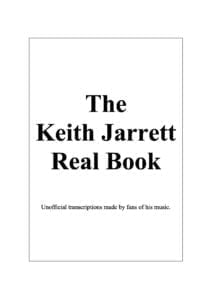Keith Jarret, Jan Garbarek & “Belonging Quartet” Oslo 1974 (NRK TV-studio)
Keith Jarrett (born May 8, 1945) is an American jazz and classical music pianist and composer.
Jarrett started his career with Art Blakey, moving on to play with Charles Lloyd and Miles Davis. Since the early 1970s he has enjoyed a great deal of success as a group leader and a solo performer in jazz, jazz fusion, and classical music. His improvisations draw from the traditions of jazz and other genres, especially Western classical music, gospel, blues, and ethnic folk music.
In 2003 Jarrett received the Polar Music Prize, the first recipient of both the contemporary and classical musician prizes, and in 2004 he received the Léonie Sonning Music Prize. His album The Köln Concert (1975) became the best-selling piano recording in history.
In 2008 he was inducted into the Down Beat Jazz Hall of Fame in the magazine’s 73rd Annual Readers’ Poll.
Keith Jarrett was born on May 8, 1945, in Allentown, Pennsylvania, United States, to a mother of Slovenian-Hungarian descent, from Prekmurjein Slovenia, and a father of either French or Scots-Irish descent. He grew up in suburban Allentown with significant early exposure to music. Jarrett possesses absolute pitch, and he displayed prodigious musical talents as a young child.
He began piano lessons before his third birthday, and at age five he appeared on a TV talent program hosted by the swing bandleader Paul Whiteman. He gave his first formal piano recital at the age of seven, playing works by composers such as Mozart, Bach, Beethoven, and Saint-Saëns, and ending with two of his own compositions. Encouraged by his mother, he took classical piano lessons with a series of teachers, including Eleanor Sokoloff of the Curtis Institute.
In his teens, as a student at Emmaus High School in Emmaus, Pennsylvania, Jarrett learned jazz and became proficient in it. He developed a strong interest in contemporary jazz; a Dave Brubeck performance was an early inspiration. He had an offer to study classical composition in Paris with Nadia Boulanger, an opportunity that pleased his mother but that Jarrett, already leaning toward jazz, decided to turn down.
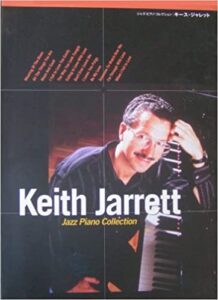
After his graduation from Emmaus High School in 1963, Jarrett moved from Allentown to Boston where he attended the Berklee College of Music and played cocktail piano in local clubs. After a year he moved to New York City, where he played at the Village Vanguard.
In New York, Art Blakey hired Jarrett to play with the Jazz Messengers. During a show he was noticed by Jack DeJohnette, who recognized the unknown pianist’s talent and unstoppable flow of ideas. DeJohnette talked to Jarrett and recommended him to his band leader, Charles Lloyd. The Charles Lloyd Quartet had formed not long before and were exploring open, improvised forms while building supple grooves, and they were moving into terrain that was also being explored, although from another stylistic background, by some of the psychedelic rock bands of the west coast.
Their 1966 album Forest Flower was one of the most successful jazz recordings of the mid-1960s, and when they were invited to play The Fillmore in San Francisco, they won over the local hippie audience. The Quartet’s tours across America, Europe, and Moscow made Jarrett a popular musician in rock and jazz. The tour also laid the foundation for a lasting musical bond with DeJohnette.
Jarrett began to record his own tracks as a leader of small groups, at first in a trio with Charlie Haden and Paul Motian. Life Between the Exit Signs (1967), his first album as a leader, was released by Vortex, followed by Restoration Ruin (1968), which Thom Jurek of AllMusic called “a curiosity in his catalog”. Not only does Jarrett barely touch the piano, but he plays all the other instruments on what is essentially a folk-rock album. Unusually, he also sings. Somewhere Before, another trio album with Haden and Motian, followed in 1968 for Atlantic Records.
The Charles Lloyd Quartet with Jarrett, Ron McClure and DeJohnette came to an end in 1968, after the recording of Soundtrack, because of disputes over money as well as artistic differences. Jarrett was asked to join the Miles Davis group after the trumpeter heard him in a New York City club (according to another version Jarrett tells, Davis had brought his entire band to see a tour date of Jarrett’s own trio in Paris; the Davis band being practically the only audience, the attention made Jarrett feel embarrassed).
During his tenure with Davis, Jarrett played both Fender Contempo electronic organ and Fender Rhodes electric piano, alternating with Chick Corea; they can be heard side by side on some 1970 recordings: for example, on the August 1970 Isle of Wight Festival performance preserved in the film Miles Electric: A Different Kind of Blue and on Bitches Brew Live. After Corea left in 1970, Jarrett often played electric piano and organ simultaneously.
Despite his growing dislike of amplified music and electric instruments within jazz, Jarrett continued with the group out of respect for Davis and because of his desire to work with DeJohnette. Jarrett has often cited Davis as a vital influence, both musical and personal, on his own thinking about music and improvisation.
Jarrett performs on several Davis albums: Miles Davis at Fillmore: Live at the Fillmore East, The Cellar Door Sessions (recorded December 16–19, 1970, at the Cellar Door club in Washington, DC). His keyboard playing features prominently on Live-Evil (which is largely composed of heavily edited Cellar Door recordings). Jarrett also plays electric organ on Get Up with It. Some other tracks from this period were released much later.
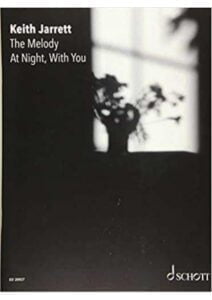
From 1971 to 1976, Jarrett added saxophonist Dewey Redman to the existing trio with Haden and Motian (who produced one more album as a trio, called The Mourning of A Star for Atlantic Records in 1971). The so-called “American quartet” was often supplemented by an extra percussionist, such as Danny Johnson, Guilherme Franco, or Airto Moreira, and occasionally by guitarist Sam Brown.
The quartet members played various instruments, with Jarrett often being heard on soprano saxophone and percussion as well as piano; Redman on musette, a Chinese double-reed instrument; and Motian and Haden on a variety of percussion. Haden also produced a variety of unusual plucked and percussive sounds with his acoustic bass, even running it through a wah-wah pedal for one track (“Mortgage on My Soul”, on the album Birth).
The group recorded two albums for Atlantic Records in 1971, El Juicio (The Judgement) and Birth; another on Columbia Records called Expectations (that included guitar by Sam Brown, plus string and brass arrangements and for which Jarrett’s contract with the label was terminated within a month of its release); eight albums on Impulse! Records; and two on ECM.
Byablue and Bop-Be, albums recorded for Impulse!, mainly feature the compositions of Haden, Motian and Redman, as opposed to Jarrett’s own, which dominated the previous albums. Jarrett’s compositions and the strong musical identities of the group members gave this ensemble a very distinctive sound. The quartet’s music is an amalgam of free jazz, straight-ahead post-bop, gospel music, and exotic, Middle-Eastern-sounding improvisations.
In the mid/late 1970s, concurrently with the American quartet, Jarrett led a “European quartet” which was recorded by ECM. This combo consisted of saxophonist Jan Garbarek, bassist Palle Danielsson, and drummer Jon Christensen. They played in a style similar to that of the American quartet, but with many of the avant-garde and Americana elements replaced by the European folk and classical music influences that characterized the work of ECM artists at the time.
Jarrett recorded a few solo pieces live under the guidance of Miles Davis at Washington’s music club The Cellar Door in December 1970. These were done on electric pianos (Rhodes and Contempo), which Jarrett was loath to perform on. Most parts of these recorded sets were released in 2007 on The Cellar Door Sessions featuring four improvisations by Jarrett.
Jarrett’s first album for ECM, Facing You (1971), was a solo piano date recorded in the studio. He has continued to record solo piano albums in the studio intermittently throughout his career, including Staircase (1976), Invocations/The Moth and the Flame (1981), and The Melody at Night, with You (1999). Book of Ways (1986) is a studio recording of clavichord solos.
The studio albums are modestly successful entries in the Jarrett catalog, but in 1973, Jarrett also began playing totally improvised solo concerts, and it is the popularity of these voluminous concert recordings that made him one of the best-selling jazz artists in history. Albums released from these concerts were Solo Concerts: Bremen/Lausanne (1973), to which Time magazine gave its ‘Jazz Album of the Year’ award; The Köln Concert (1975), which became the best-selling piano recording in history; and Sun Bear Concerts (1976) – a 10-LP (and later 6-CD) box set.
Another of Jarrett’s solo concerts, Dark Intervals (1987, Tokyo), had less of a free-form improvisation feel to it because of the brevity of the pieces. Sounding more like a set of short compositions, these pieces are nonetheless entirely improvised.
After a hiatus, Jarrett returned to the extended solo improvised concert format with Paris Concert (1990), Vienna Concert (1991), and La Scala (1995). These later concerts tend to be more influenced by classical music than the earlier ones, reflecting his interest in composers such as Bach and Shostakovich, and are mostly less indebted to popular genres such as blues and gospel. In the liner notes to Vienna Concert, Jarrett named the performance his greatest achievement and the fulfillment of everything he was aiming to accomplish: “I have courted the fire for a very long time, and many sparks have flown in the past, but the music on this recording speaks, finally, the language of the flame itself.”
Jarrett has commented that his best performances have been when he has had only the slightest notion of what he was going to play at the next moment. He also said that most people don’t know “what he does”, which relates to what Miles Davis said to him expressing bewilderment – as to how Jarrett could “play from nothing”. In the liner notes of the Bremen Lausanne album Jarrett states something to the effect that he is a conduit for the ‘Creator’, something his mother had apparently discussed with him.
This has caused occasional moments of confusion, where reportedly at a concert he was so indecisive as to what to play that he just sat at the piano in silence until someone in the audience yelled out “C-sharp major!”, prompting Jarrett to thank the audience and begin playing.
Jarrett’s 100th solo performance in Japan was captured on video at Suntory Hall, Tokyo, in April 1987, and released the same year as Solo Tribute. This is a set of almost all standard songs. Another video recording, Last Solo, was released in 1987 from a solo concert at Kan-i Hoken hall in Tokyo in January 1984.
In the late 1990s, Jarrett was diagnosed with chronic fatigue syndrome and was unable to leave his home for long periods of time. It was during this period that he recorded The Melody at Night, with You, a solo piano effort consisting of jazz standards presented with very little of the reinterpretation he usually employs. The album had originally been a Christmas gift to his second wife, Rose Anne.
By 2000, Jarrett had returned to touring, both solo and with the Standards Trio. Two 2002 solo concerts in Japan, Jarrett’s first solo piano concerts following his illness, were released on the 2005 CD Radiance (a complete concert in Osaka, and excerpts from one in Tokyo), and the 2006 DVD Tokyo Solo (the entire Tokyo performance). In contrast with previous concerts (which were generally a pair of continuous improvisations 30–40 minutes long), the 2002 concerts consist of a linked series of shorter improvisations (some as short as a minute and a half, a few of 15 or 20 minutes).
In September 2005, at Carnegie Hall, Jarrett performed his first solo concert in North America in more than ten years, released a year later as a double-CD set, The Carnegie Hall Concert. In late 2008, he performed solo in the Salle Pleyel in Paris and at London’s Royal Festival Hall, marking the first time Jarrett had played solo in London in 17 years. Recordings of these concerts were released in October 2009 on the album Paris / London: Testament.
In 1983, at the suggestion of ECM head Manfred Eicher, Jarrett asked bassist Gary Peacock and drummer Jack DeJohnette, with whom he had worked on Peacock’s 1977 album Tales of Another, to record an album of jazz standards, simply titled Standards, Volume 1. Two more albums, Standards, Volume 2 and Changes, both recorded at the same session, followed soon after.
Browse in the Library:
| Artist or Composer / Score name | Cover | List of Contents |
|---|---|---|
| A Dance of Dragons – Blood of the Dragon (Game of Thrones) Piano solo arr. |
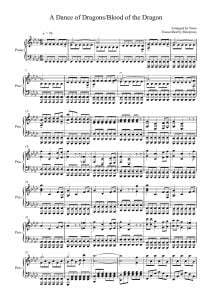 |
|
| A Dictionary of Music and Musicians Vol. 4 (A.D. 1450-1880) Edited in 1889 |
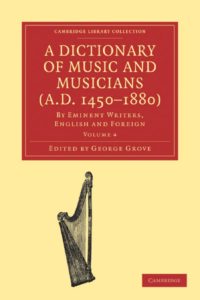 |
|
| A dozen A Day Book 1 Technical exercises for the piano |
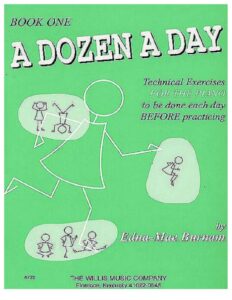 |
A dozen A Day Book 1 Technical exercises for the piano |
| A dozen A Day Book 2 Technical exercises for the piano |
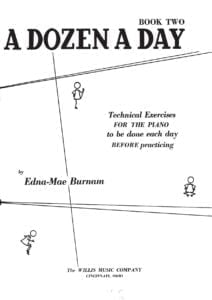 |
|
| A dozen A Day Book 3 Technical exercises for the piano |
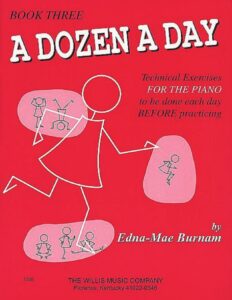 |
|
| A dozen A Day Book 4 Technical exercises for the piano |
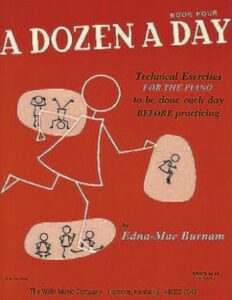 |
|
| A dozen A Day Mini Book Technical exercises for the piano |
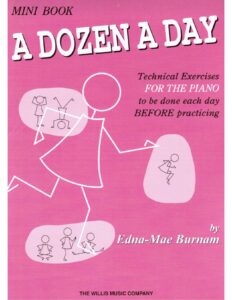 |
|
| A dozen Day Preparatory Book Technical exercises for the piano |
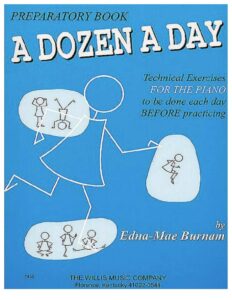 |
|
| A Farewell To Arms Love Theme From A Farewell To Arms film by Mario Nascimbene Francis Webster 1957 |
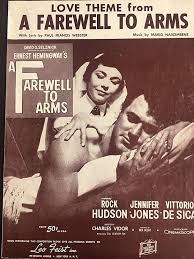 |
|
| A Felicidade (Antonio Carlos Jobim) | ||
| A Festival Gathering Of Carols (Musescore File).mscz | ||
| A Fine Frenzy – Almost Lover |
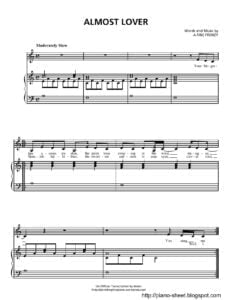 |
|
| A Fistful of Dollars (Ennio Morricone) | ||
| A Generative Theory Of Tonal Music by Fred Lerdahl and Ray Jackendoff (Book) |
 |
|
| A Guide To Guitar Chords by Curt Sheller |
 |
A Guide To Guitar Chords by Curt Sheller |
| A Guide To Musical Analysis by Nicholas Cook (Book) |
 |
|
| A Handbook Of Piano Playing (By Eric Hope) (1962) |
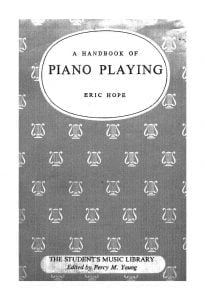 |
|
| A Heart Full Of Love (Musescore File).mscz | ||
| A love suicide (Yutaka Minobe) | ||
| A Love Supreme (by Ashley Kahn) The story of john Coltrane’s signature album (Book) |
 |
|
| A Media Luz (Edgardo Donato) | ||
| A Modern Approach To Jazz Rock And Fusion For Guitar with Tablature |
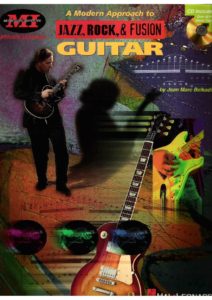 |
A Modern Approach To Jazz Rock And Fusion For Guitar |
| A Modern Method For Guitar (Berklee) 1 by William Leavitt |
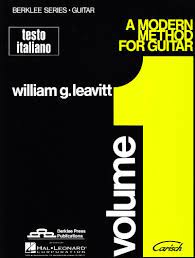 |
A Modern Method Berklee 1 |
| A Modern Method For Guitar (Berklee) 2 by William Leavitt |
 |
A Modern Method For Guitar (Berklee) 2 |
| A Modern Method For Guitar (Berklee) 3 by William Leavitt |
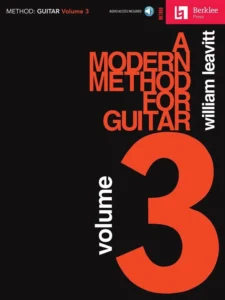 |
A Modern Method For Guitar (Berklee) 3 |
| A MOZART REINCARNATED (Ennio Morricone) |
 |
|
| A Mozart Reincarnated by Ennio Morricone (Musescore File).mscz | ||
| A New Approach To Ear Training by Leo Kraft (BOOK) |
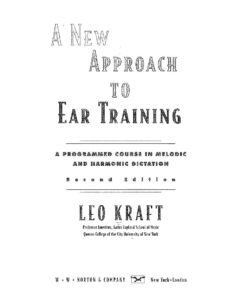 |
|
| A New Approach To Piano Technique (By Ruth A. Dickerson) (1962) |
 |
A new approach to piano technique |
| A Night In Tunisia – Dizzy Gillespie.mscz | ||
| A Pedal Method For The Piano (By Albert F Venino) (1893) |
 |
|
| A Popular Account Of Ancient Musical Instruments And Their Development by William Lynd (Book 1897) |
 |
|
| A Rockin’ Christmas Piano Vocal Guitar |
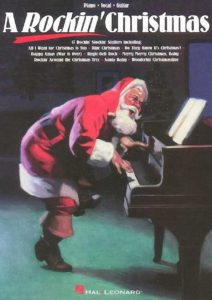 |
A Rockin’ Christmas Piano Vocal Guitar Contents — Rockin Christmas |
| A Single Man – George’s Waltz (Shigeru Umebayashi) | ||
| A Single Man – Stillness of the Mind (Abel Korzeniowski) | ||
| A Smooth Jazz Christmas – Mellow Seasonal Favorites for Piano arr. Roger House |
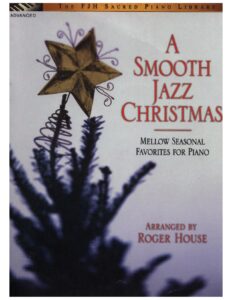 |
A Smooth Jazz Christmas – Mellow Seasonal Favorites for Piano arr. Roger House |
| A Song For You – Leon Russell Ray Charles (Musescore File).mscz | ||
| A Star Is Born – Always Remember Us This Way Lady Gaga |
 |
|
| A Star Is Born – Shallow Lady Lady Gaga |
 |
|
| A Tale Of Two Sisters Ost – Epilogue Piano Solo |
 |
|
| A Thousand Years – Twilight OST (Christina Perri) | ||
| A Time For Love – Johnny Mandel |
 |
|
| A Time For Us – Guitar TABlature |
 |
|
| A Time For Us (Love Theme from Romeo and Juliet) Nino Rota |
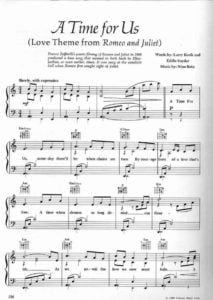 |
|
| A Time For Us (Romeo and Juliet OST) Nino Rota | ||
| A Touch Of Jazz 14 well-known hymns, gospel songs and contemporary praise songs by Wolaver Bill |
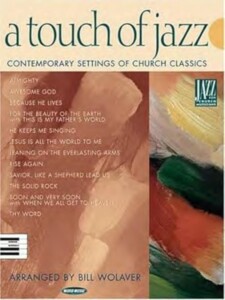 |
A Touch Of Jazz 14 well-known hymns, gospel songs and contemporary praise songs by Wolaver Bill |
| A Tribute To Ella Fitzgerald Piano Vocal Guitar |
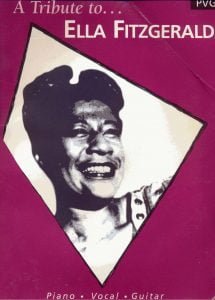 |
A tribute to ELLA FITZGERALD |
| A Walk To Remember – Only Hope | ||
| A whiter shade of pale – Procul Harum | A whiter shade of pale – Procul Harum | |
| AaRON U-turn Lili Piano |
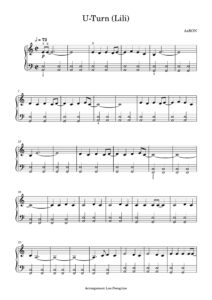 |
|
| Ab Ovo – Joep Beving (Musescore File).mscz | ||
| Abba – Abba Gold – Greatest Hits |
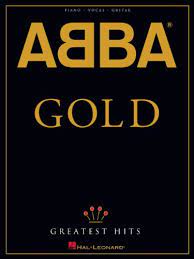 |
ABBA Gold Geatest Hits booksong sheet music |
| Abba – Chiquitita | ||
| Abba – Dancing Queen | ||
| Abba – Fernando | ||
| Abba – I Have A Dream | ||
| Abba – Like An Angel Passing Through My Room | ||
| Abba – Mamma Mia | ||
| Abba – Slipping Through My Fingers | ||
| Abba – Thank You For The Music | Abba-Thank-You-For-The-Music 1st page | |
| ABBA – Thank You For The Music (Piano Vocal Guitar) | ABBA – Thank You For The Music (Piano Vocal Guitar) | |
| ABBA – Thank You For the Music (Piano vocal Guitar) (Musescore File).mscz | ||
| Abba – Thank You For The Music Piano & vocal | Abba – Thank You For The Music-abba-satb | |
| Abba – The Winner Takes It All | ||
| ABBA Dancing Queen Easy Piano Solo |
 |
|
| ABBA Fernando (Piano Solo arr.) |
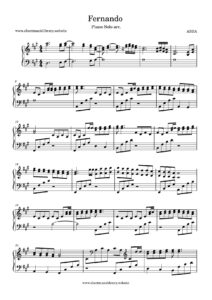 |
|
| ABBA Fernando (Piano Solo arr.).mscz | ||
| ABBA Greatest Hits |
 |
ABBA GREATEST HITS SHEET MUSIC BOOK |
| ABBA I Have A Dream |
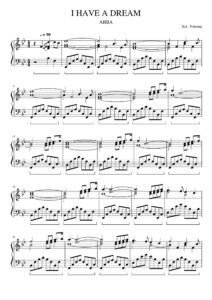 |
|
| Abba The Very Best Vol 1 Easy Piano Hans Gunter Heumann Pop Classics For Piano |
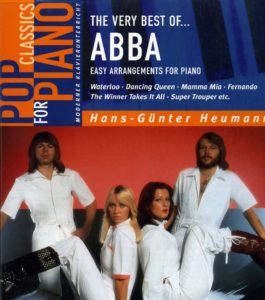 |
Abba The Very Best Vol 1 Easy Piano |
| Abba The Very Best Vol 2 Easy Piano Hans Gunter Heumann Pop Classics For Piano |
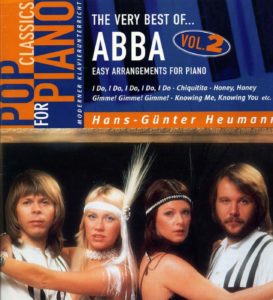 |
Abba The Very Best Vol 2 Easy Piano |
| Abbey Lincoln Songbook |
 |
Abbey Lincoln Songbook |
| Abbey Lincoln Songbook Piano Vocal Guitar Chords |
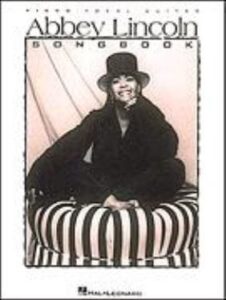 |
Abbey Lincoln Songbook Piano Vocal Guitar Chords |
| Abdullah Ibrahim – The Piano World Of |
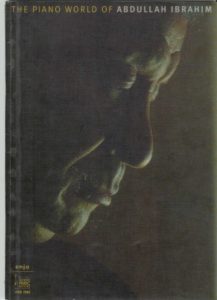 |
Abdullah Ibrahim, The Piano World Of |
| Abdullah Ibrahim The African Piano Of Abdullah Ibrahim Vol 1 |
 |
Abdullah Ibrahim The African Piano Of Abdullah Ibrahim Vol 1 |
| Abdullah Ibrahim The Wedding (piano solo transcription sheet music, partition) |
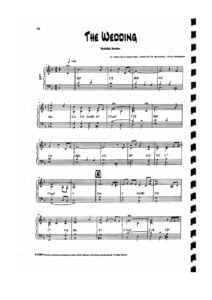 |
|
| Abel Korzeniowski – Death Is My Heir (from Romeo and Juliet) |
 |
|
| ABRSM Jazz Piano Pieces Grade 1 to 5 |
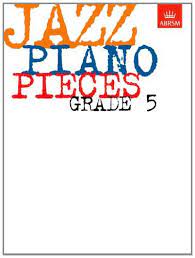 |
ABRSM Jazz Piano Pieces Grade 1 to 5 ABRSM Jazz Piano Pieces Grade 5ABRSM Jazz Piano Pieces Grade 5 |
| ABRSM Piano Exam Pieces Grade 1 (2016) |
 |
ABRSM Piano Exam Pieces Grade 1 (2016) |
| ABRSM Piano Scales, Arpeggios Grade 8 |
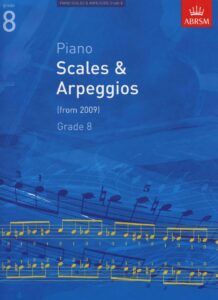 |
|
| ABRSM Piano Scales, Arpeggios and broken chords Grade 1 |
 |
|
| ABRSM Piano Scales, Arpeggios and broken chords Grade 4 |
 |
ABRSM Piano Scales, Arpeggios and broken chords Grade 4 |
| ABRSM Piano Scales, Grade 2 A Guide for Students and Teachers | ABRSM Piano Scales, Grade 2 A Guide for Students and Teachers | |
| ABRSM – Time pieces for guitar vol. 1 |
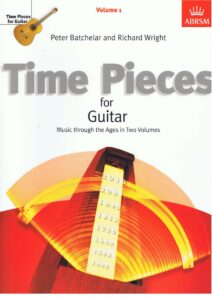 |
|
| ABRSM – Time pieces for guitar vol. 2 |
 |
|
| ABRSM 2017 18 Piano Exam Pieces Grade 1 |
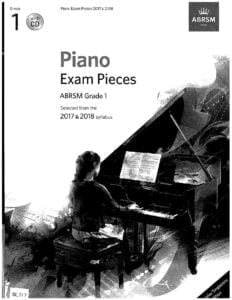 |
ABRSM 2017 18 Piano Exam Pieces Grade 1 |
| ABRSM 2017 18 Piano Exam Pieces Grade 2 |
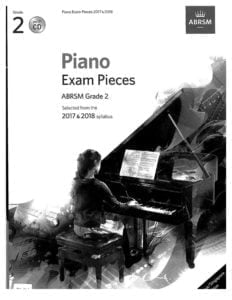 |
ABRSM 2017 18 Piano Exam Pieces Grade 2 |
| ABRSM 2017 18 Piano Exam Pieces Grade 3 |
 |
|
| ABRSM 2017 18 Piano Exam Pieces Grade 4 |
 |
|
| ABRSM 2017 18 Piano Exam Pieces Grade 5 |
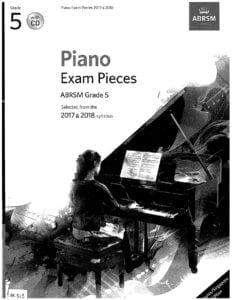 |
|
| ABRSM 2017 18 Piano Exam Pieces Grade 6 |
 |
|
| ABRSM 2017 18 Piano Exam Pieces Grade 7 |
 |
|
| ABRSM 2017 18 Piano Exam Pieces Grade 8 |
 |
|
| ABRSM 2021-2022 Piano Exam Pieces Grade 1 |
 |
|
| ABRSM 2021-2022 Piano Exam Pieces Grade 2 |
 |
|
| ABRSM 2021-2022 Piano Exam Pieces Grade 3 |
 |
|
| ABRSM 2021-2022 Piano Exam Pieces Grade 5 |
 |
|
| ABRSM 2021-2022 Piano Exam Pieces Grade 6 |
 |
|
| ABRSM 2021-2022 Piano Exam Pieces Grade 8 |
 |
|
| ABRSM 2021-2022 Piano Exam Pieces Initial Grade |
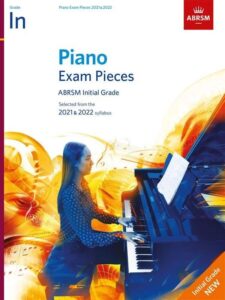 |
ABRSM 2021-2022 Piano Exam Pieces Initial Grade |
| ABRSM Aural Training In Practice Book 1 Grades 1 to 3 |
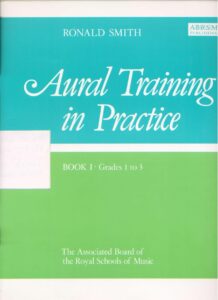 |
|
| ABRSM Aural Training In Practice Book 2 Grades 4 and 5 |
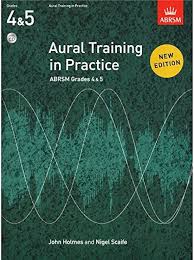 |
|
| ABRSM Discovering Music Theory (Complete) Grades 1 to 5 Workbook by Simon Rushby (2020 Exams) |
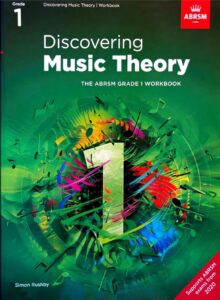 |
ABRSM Discovering Music Theory (Complete) Grades 1 to 5 Workbook by Simon Rushby (2020 Exams) contents |
| ABRSM Erster Verlust Grade 4 ABRSM Piano Exam Pieces 2021 & 2022 |
 |
|
| ABRSM Etude In A Minor – Dmitry Kabalevsky ABRSM Grade 4 Piano Exam Pieces 2021 & 2022 |
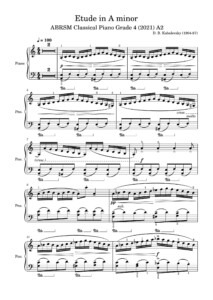 |
|
| ABRSM Grade 2 – Inter-City Stomp byChristopher Norton From Microjazz Collection (Sheet Music) |
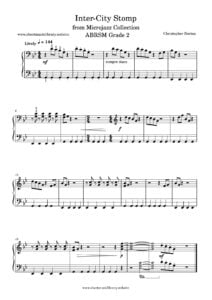 |
|
| ABRSM Initial Grade Piano Exam Pieces 2023 2024 |
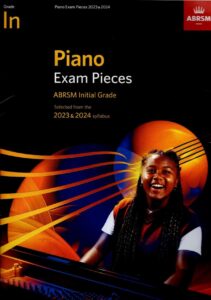 |
|
| ABRSM Minuet and Trio D 41 No 21 – Franz Schubert ABRSM Grade 4 Piano Exam Pieces 2021 & 2022 |
 |
|
| ABRSM More Music Theory Sample Papers Grade 5 For New Format |
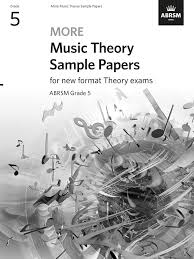 |
|
| ABRSM Music Theory In Practice, Grade 1 (Eric Taylor) |
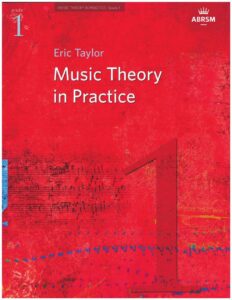 |
|
| ABRSM Music Theory In Practice, Grade 2 (Eric Taylor) |
 |
|
| ABRSM Music Theory Past Papers Grade 1 2004 |
 |
|
| ABRSM Music Theory Past Papers Grade 4 2016 |
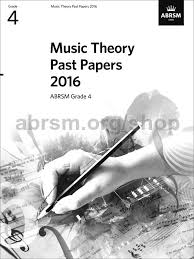 |
|
| ABRSM Music Theory Past Papers Grade 5 2012 |
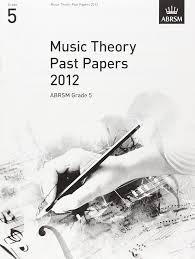 |
|
| ABRSM Music Theory Past Papers Grade 6 2013 |
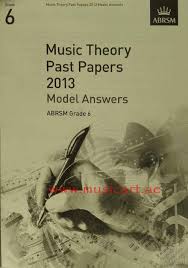 |
|
| ABRSM Nikki Iles Danny Boy ABRSM Piano Exam Grade 8 2023 Jazz Piano arr. inspired by Bill Evans |
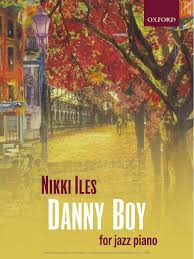 |
|
| ABRSM Nikki Iles Friends Book 1 Intermediate Jazz Pieces For Piano |
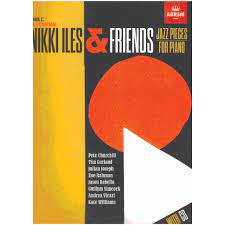 |
ABRSM Nikki Iles Friends Book 1 Intermediate Jazz Pieces For Piano |
| ABRSM Nikki Iles Friends Book 2 Intermediate To Advanced Jazz Pieces For Piano |
 |
ABRSM Nikki Iles Friends Book 2 Intermediate To Advanced Jazz Pieces For Piano |
| ABRSM Nikki Iles The Elephant Parade ABRSM piano Exam |
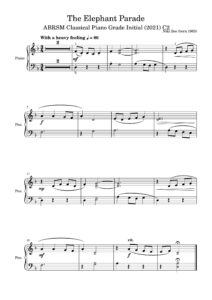 |
|
| ABRSM Piano 2025-2026 Grade 8 C3 A Nightingale Sang in Berkeley Square by Sherwin – Maschwitz |
 |
The success of these albums and the group’s ensuing tour, which came as traditional acoustic post-bop was enjoying an upswing in the early 1980s, led to this new standards trio becoming one of the premier working groups in jazz, and certainly one of the most enduring, continuing to record and tour for more than 25 years. The trio went on to record numerous live and studio albums consisting primarily of jazz repertory material.
The Jarrett-Peacock-DeJohnette trio also produced recordings that consist largely of challenging original material, including 1987’s Changeless. Several of the standards albums contain an original track or two, some attributed to Jarrett, but most being group improvisations. The live recordings Inside Out and Always Let Me Go (released in 2001 and 2002 respectively) marked a renewed interest by the trio in wholly improvised free jazz. By this point in their history, the musical communication among these three men had become nothing short of telepathic, and their group improvisations frequently take on a complexity that sounds almost composed.
The standards trio undertook frequent world tours of recital halls (the only venues in which Jarrett, a notorious stickler for acoustics, will play) and was one of the few truly successful jazz groups to play both straight-ahead (as opposed to smooth) and free jazz.
A related recording, At the Deer Head Inn (1992), is a live album of standards recorded with Paul Motian replacing DeJohnette, at the venue in Delaware Water Gap, Pennsylvania, 40 miles from Jarrett’s hometown, where he had his first job as a jazz pianist. It was the first time Jarrett and Motian had played together since the demise of the American quartet sixteen years earlier.
The trio disbanded in 2014 after playing together for more than 30 years. The final concert of Keith Jarrett’s trio was on November 30 2014 New Jersey Performing Arts Center, Newark, NJ, USA. The last encore was Thelonious Monks’ composition Straight No Chaser.
Since the early 1970s, Jarrett’s success as a jazz musician has enabled him to maintain a parallel career as a classical composer and pianist, recording almost exclusively for ECM Records.
In The Light, an album made in 1973, consists of short pieces for solo piano, strings, and various chamber ensembles, including a string quartet and a brass quintet, and a piece for cellos and trombones. This collection demonstrates a young composer’s affinity for a variety of classical styles.
Luminessence (1974) and Arbour Zena (1975) both combine composed pieces for strings with improvising jazz musicians, including Jan Garbarek and Charlie Haden. The strings here have a moody, contemplative feel that is characteristic of the “ECM sound” of the 1970s, and is also particularly well suited to Garbarek’s keening saxophone improvisations. From an academic standpoint, these compositions are dismissed by many classical music aficionados as lightweight, but Jarrett appeared to be working more towards a synthesis between composed and improvised music at this time, rather than the production of formal classical works. From this point on, however, his classical work would adhere to more conventional disciplines.
Ritual (1977) is a composed solo piano piece recorded by Dennis Russell Davies that is somewhat reminiscent of Jarrett’s own solo piano recordings.
The Celestial Hawk (1980) is a piece for orchestra, percussion, and piano that Jarrett performed and recorded with the Syracuse Symphony under Christopher Keene. This piece is the largest and longest of Jarrett’s efforts as a classical composer.
Bridge of Light (1993) is the last recording of classical compositions to appear under Jarrett’s name. The album contains three pieces written for a soloist with orchestra, and one for violin and piano. The pieces date from 1984 and 1990.
In 1988, New World Records released the CD Lou Harrison: Piano Concerto and Suite for Violin, Piano and Small Orchestra, featuring Jarrett on piano, with Naoto Otomo conducting the piano concerto with the New Japan Philharmonic. Robert Hughes conducted the Suite for Violin, Piano, and Small Orchestra. In 1992 came the release of Jarrett’s performance of Peggy Glanville-Hicks‘s Etruscan Concerto, with Dennis Russell Davies conducting the Brooklyn Philharmonic. This was released on Music Masters Classics, with pieces by Lou Harrison and Terry Riley. In 1995 Music Masters Jazz released a CD on which one track featured Jarrett performing the solo piano part in Lousadzak, a 17-minute piano concerto by American composer Alan Hovhaness.
The conductor again was Davies. Most of Jarrett’s classical recordings are of older repertoire, but he may have been introduced to this modern work by his one-time manager George Avakian, who was a friend of the composer. Jarrett has also recorded classical works for ECM by composers such as Bach, Handel, Shostakovich, and Arvo Pärt.
In 2004, Jarrett was awarded the Léonie Sonning Music Prize. The award, usually associated with classical musicians and composers, had previously been given to only one other jazz musician – Miles Davis.
Jarrett has also played harpsichord, clavichord, organ, soprano saxophone, and drums. He often played saxophone and various forms of percussion in the American quartet, though his recordings since the breakup of that group have rarely featured these instruments. On the majority of his recordings in the last 20 years, he has played acoustic piano only. He has spoken with some regret of his decision to give up playing the saxophone, in particular.
On April 15, 1978, Jarrett was the musical guest on Saturday Night Live. His music has also been used on many television shows, including The Sopranos on HBO. The 2001 German film Bella Martha (English title: Mostly Martha), whose music consultant was ECM founder and head Manfred Eicher, features Jarrett’s “Country”, from the European quartet album My Song and “U Dance” from the album Tribute.
One of Jarrett’s trademarks is his frequent, loud vocalizations, similar to those of Glenn Gould, Thelonious Monk, Charles Mingus, Erroll Garner, Oscar Peterson, Ralph Sutton, Willie “The Lion” Smith, Paul Asaro, and Cecil Taylor. Jarrett is also physically active while playing. These behaviors occur in his jazz and improvised solo performances, but are for the most part absent whenever he plays classical repertory. Jarrett has noted his vocalizations are based on involvement, not content, and are more of an interaction than a reaction.
Jarrett is extremely intolerant of audience noise, especially during solo improvised performances. He feels that extraneous noise affects his musical inspiration and distracts from the purity of the sound. As a result, cough drops are routinely supplied to Jarrett’s audiences in cold weather, and he has been known to stop playing and lead the crowd in a group cough.
Jarrett lives in an 18th-century farmhouse in Oxford Township, New Jersey, in rural Warren County. He uses a converted barn on his property as a recording studio and practice facility.
